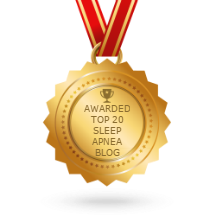Author Archives: Carol Brennan
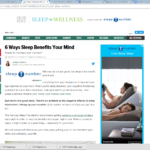
Six Ways Sleep Can Benefit Your Mind
Can sleep benefit the mind? Absolutely
Milk may do a body good, but sleep is the mind’s best friend.
Everything from your happiness to how well you age depends on your brain. When you’re sleep deprived, your cognitive functioning plummets to a less-than-ideal level, making it hard to go about your day. That poses a serious threat to your mood, your memory and more.
But here’s the good news. There’s an antidote to the negative effects of sleep deprivation: Hiking up your number. (The number of hours of sleep you get, that is.)
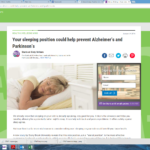
Can your sleeping position help prevent Alzheimer’s & Parkinson’s?
Can your sleeping position benefit brain health?
We already know that a sleeping position on your side is, broadly speaking, very good for you. It clears the airwaves and helps you breathe, allowing for a potentially better night’s sleep. It can help with back and posture problems. It offers safety against sleep apnea.
But now there’s a far more vital reason to consider rolling over: sleeping on your side could benefit your brain health.
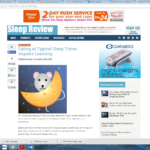
Studies Show Late Night Eating could impair learning
Could Late Night Eating Affect Learning?
An occasional late-night raid on turkey leftovers might be harmless but new research with mice suggests that making a habit of it could alter brain physiology.
VIDEO: Semi Truck Driver Falls Asleep; Results In Accident
Truck Driver Falls Asleep
In this video, trucker fatigue is once again brought to the national forefront, as a semi truck driver falls asleep at the wheel, and almost causes a deadly crash with another driver when he merges into another lane and hits the trucker head on.
Luckily, both drivers were ok.
You can buy CPAP Machines, tubing and all of your CPAP supplies at CPAP America, 943 Kings Highway, Suite 503, West Deptford, NJ 08066. Feel free to contact us at 1-800-569-0167.
You can also reach us via email here.

Commercial Drivers With Sleep Apnea: Here’s What you need to know
Editor’s note: The Federal Motor Carrier Safety Administration has submitted a Notice of Proposed Rulemaking that would regulate testing and treatment of truck drivers and other transportation workers suffering from sleep apnea. The proposal is expected to be published in the Federal Register in January, 2016. With this proposal in mind, we asked sleep apnea expert Michael Decker about current research and treatment options for this disease.

Sitting, lack of sleep can shorten your life
Sitting, lack of sleep can shorten your life
You already know that smoking is bad for you and that drinking too much alcohol may shorten your life. Now a new study says that spending too much time in a chair and depriving yourself of necessary sleep should join a short list of behaviors known to increase your risk of premature death.
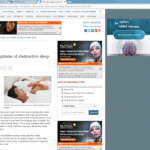
Ignoring Obstructive Sleep Apnea Could Be Deadly
Obstructive sleep apnea (OSA) is a serious illness. If you suspect that a patient may have it, do them a favor and order a sleep study to confirm. Left untreated, OSA leads to heart attacks and strokes, and it has associations with other conditions including diabetes, hypertension, and dementia.
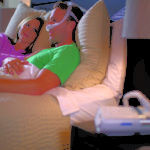
This Common Issue Is Found In Sleep Apnea Patients
Researchers at Umeå University in Sweden have discovered unique muscle fibers in the soft palate of the mouth in both infants and adults. The fibers seem to be present in greater number in snorers and sleep apnea patients. The findings were recently published article in the Journal of Anatomy.
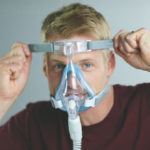
Quality sleep issues? Check out these tips
Quality sleep can make all the difference when it comes to productivity in the office. In fact, overall on-the-job sleepiness costs employers about $100 billion in lost productivity.
It’s time to take that productivity back. Use these tips to get better quality sleep yourself, and share the tips with your friends and coworkers to beat office exhaustion.

Sleep loss could be the reason you’re feeling cranky
A lesson in sleep loss
The Centers for Disease Control and Prevention (CDC) call insufficient sleep a “public health problem” and estimate that 30% of Americans get less than 6 hours of sleep a night.
Lack of sleep is linked to motor vehicle crashes, industrial disasters, and medical and other occupational errors. Diseases linked to sleep insufficiency include hypertension, diabetes, depression, obesity and cancer.
Contributing factors include round-the-clock access to technology and work schedules as well as disorders such as insomnia or obstructive sleep apnea.
Until now, it has not been clear what causes the emotional impairments triggered by sleep loss.

